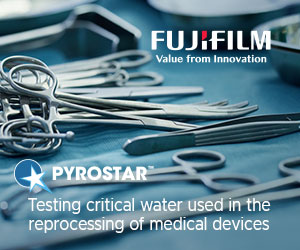Miniature, Chemicall...
Novel Gram Stain Pla...
26th May 2015 Content supplied by: Food Standards Agency (FSA), UK
FSA Says One Third of Us will get Camplyobacter Food Poisoning
New figures from the UK Food Standards Agency (FSA) suggest that up to a third of the population could contract food poisoning from campylobacter, a bug most commonly found on raw chicken, during their lifetime. The figure is based on the current infection rates of more than a quarter of a million people per year.
Campylobacter is most frequently found on raw poultry and is the biggest cause of food poisoning in the UK. The FSA has released the figure to mark the start of 2015’s Food Safety Week and the launch of the ‘Chicken Challenge’ – its call to the whole food chain, from industry to consumers, to do their bit to halve the number of campylobacter food poisoning cases by the end of 2015.
Over a quarter of a million people in the UK – an estimated 280,000 – currently fall ill with campylobacter food poisoning per year. Depending on people’s lifestyle and diet the FSA estimates that campylobacter will affect up to one third of people during their lifetimes. Research has shown that reducing the numbers of the most highly contaminated birds would reduce the public health risk by around 50%, saving thousands of people a year from falling prey to a painful form of food poisoning which, in some cases, can result in paralysis.
The FSA has been leading the industry on reducing campylobacter contamination and is currently conducting a year-long survey looking at the levels of campylobacter on fresh whole chilled retail chickens and their packaging. In partnership with farmers and producers, through to caterers and retailers, all parts of the food chain have been working to meet the 2015 target.
Read more on the FSA website
Tags:
Date Published: 26th May 2015
Source article link: View
Miniature, Chemically Inert Stepper Dispense
Novel Gram Stain Platform to






